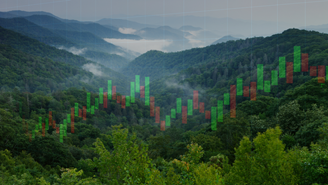This blog originally appeared on GES International’s website and has been republished following Sustainaltyics’ acquisition of the company on 9 January 2019. See the press release for more information.
The Special Report on Global Warming of 1.5ºC, issued by in Incheon, Republic of Korea, by the Intergovernmental Panel on Climate Change on October 8th, is considered by many as the most critical report on climate change action in recent years. It will contribute as key scientific input to the facilitative dialogue on a global stocktake of national commitments, particularly during the upcoming Conference of the Parties (COP24).
The report follows nearly two years of extreme weather events to evaluate the trade-offs of moving beyond a 2.ºC vision/framework. Ultimately, it poses the question “are we doing enough”, as we are estimated to be reaching the 1ºC mark and significantly falling short of climate objectives under the current trajectory.
The report estimates that global net human-caused emissions of carbon dioxide (CO2) would need to fall by about 45 per cent from 2010 levels by 2030 before reaching net zero around 2050, while the global population continues to grow. Pathways towards a 1.5°C target with no or limited overshoot would require far-reaching transitions in the land, energy, infrastructure and industrial systems. Relative to the 2.0°C scenario, estimates for the 1.5°C scenario include a potential 50 per cent reduction in water stress and over 50 per cent reduction in global population exposure to severe heat at least once every five years. There is furthermore a likelihood for a reduction in heavy precipitation events, as well as improvements in crop yield and species diversity that may impact food security.
In societies already undergoing fundamental changes, there will be a need to further cross-sectoral collaboration, with innovation and scaling potentially assuming an expanded role at the policy level. Industry initiatives may increasingly converge with planning surrounding climate resilient cities and infrastructure, including C40 cities committed to implementing ambitious climate action plans. Investors, debt issuers, ratings- and insurance firms may enhance tools for evaluating climate risk-based costs, while scenario analysis – still at early stages – is likely to become increasingly integrated into enterprise risk management.
With attention turning to the Katowice Climate Change Conference in December, the report indicates a knowledge gap with respect to the effectiveness of 1.5°C mitigation efforts on the sustainable development goals. Climate-related incidents have been known to affect the poorest that are often living in the most exposed areas, a trend that may grow with continued urbanisation and migration.
GES will continue to engage with companies via two-way dialogue and proxy voting, to facilitate the transition to international climate targets. Read the report.




